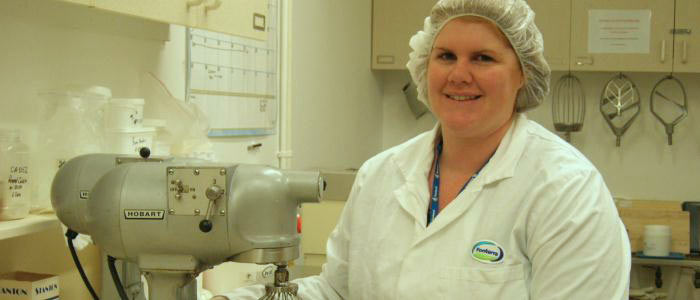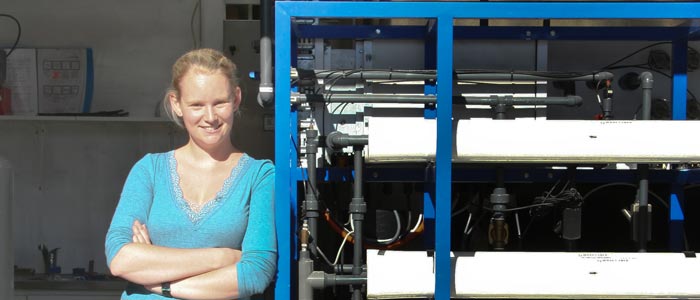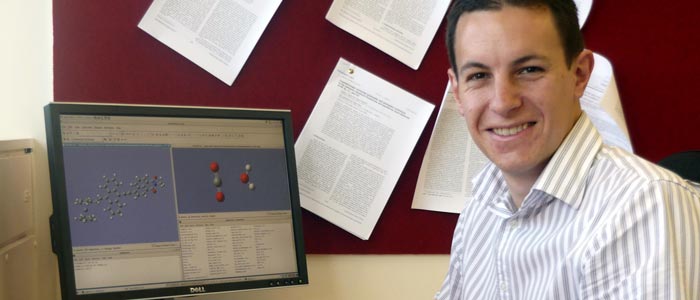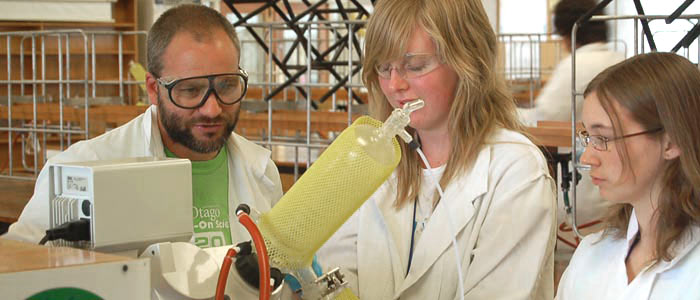The job opportunities available to graduates with a degree in chemistry are as far-reaching as the subject itself. In industries involving chemicals, plastics, pharmaceuticals, food, textiles and timber, there are many opportunities for employment, working in areas such as research and development, quality control, marketing, sales or management. In addition, chemists play a leading role in agriculture, horticulture, fisheries, water quality control, in chemical, biochemical, and medical research units, and in the public sector, covering such areas as pollution monitoring, water purification and forensic work solving criminal cases.
Recent changes in environmental, occupational health and safety legislation have resulted in increased employment opportunities in both the public sector and industry. Additionally, the shortage of chemistry teachers is a perennial one, and chemistry graduates are in continual demand for commerce-related positions. Chemistry trains you to handle information and to deal with complex concepts. These are qualities sought after by many different employers and chemists can be found in areas as diverse as finance, law, politics and retailing. The University's Careers Advisory Service can be a very useful course of information when looking to apply for jobs.
Dr Lisa McClintock - BSc(Hons), PhD
Associate Research Technologist - income $50-70K

What is your current job and what does it involve?
My current job is working as a technologist at Fonterra in Palmerston North. My role involves looking at how Fonterra's protein ingredients perform in protein and snack bars. In practice this means that I'm planning trials, making bars and bar components, then testing and tasting them.
What was the key factor in your career decision?
I wanted to apply my scientific knowledge in a practical way. Joining Fonterra was a fantastic opportunity to work for a global company in an industry that is important to the economy of NZ.
What education do you have?
I studied chemistry and dairy science and technology at university.
What do you like most about your job?
I love that I get to interact with a diverse range of people: other researchers, the in-market teams, customers and even farmers. I also like making products that everyday people are interested in.
What advice would you give a high school student who is interested in your line of work?
Keep up studying science at high school and look at doing a science, engineering or technology degree at university. You can also check out www.futureintech.org.nz for more information about career options
Tamsyn Dawson - BSc(Hons)
Environmental Manager - income $70-80K

What is your current job and what does it involve?
My current job as Environmental Manager at Ravensdown's Ravensbourne Works in Dunedin involves oversight of the environmental aspects of the chemical processes of manufacturing sulphuric acid and superphosphate fertiliser on a large scale. A key part of the role is ensuring that emissions from the site continue to meet resource consent requirements set by the Otago Regional Council and National Environmental Standards set by the Ministry for the Environment.
What was the key factor in your career decision?
As I drew toward the end of my time studying I was adamant that I wanted a job where I could use the skills I had learnt at university and not be stuck behind a desk. I also wanted variety in my work and finding work in a laboratory met both of these requirements. In taking on my current role I chose to move away from a laboratory setting whilst still working closely with the laboratory team. This has enabled me to retain the variety in my work and at the same time progress my career and start learning new skills such as community liaison and project management.
What education do you have?
My high school years were spent at Verdon College, Invercargill, where I was Dux in 2000. From there I went on to study Chemistry at the University of Otago, graduating with a Bachelor of Science with Honours in 2004.
What do you like most about your job?
I love the problem solving aspect of my job, analysing a situation to determine specifically what went wrong and then working out the best way to remedy this in both the short and long term. I like that my job focuses on environmental improvement as it fits well with my personal priorities.
What advice would you give a high school student who is interested in your line of work?
A real interest in the science subjects at high school would be advantageous, particularly chemistry and physics, as well as mathematics. If it doesn't grab your interest then studying chemistry may prove challenging…! The beauty of chemistry is in the variety of potential applications: everything from fertilisers to medicine, cosmetics to fireworks. I believe chemistry provides a strong basis for future employment opportunities.
Dr Jo Lane - BSc(Hons), PhD
Lecturer in Physical and Theoretical Chemistry - income $75K

What is your current job and what does it involve?
I am a Lecturer in the Department of Chemistry at the University of Waikato. I teach 200-500 level papers in Physical and Theoretical Chemistry. My research interests involve the application of high level quantum chemical calculations to predict and interpret the reaction kinetics and spectroscopy of atmospherically relevant molecules.
What was the key factor in your career decision?
Serendipity. Chemistry was one of my weaker subjects at High School. I started at the University of Otago intent on becoming a medical doctor but after my first year I realized that I was much more interested in chemistry than anything else. After 7 years study I am now a doctor, just not a particularly useful one in any medical crisis.
What education do you have?
As above.
What do you like most about your job?
The variety of different aspects to my job. I thoroughly enjoy teaching and engaging with students but also take every opportunity to work on my research interests. The political aspect of Academic life is also fascinating, although sometimes quite frustrating.
What advice would you give a high school student who is interested in your line of work?
Always back yourself and don't listen to people's criticism of your ambitions.
Dr David McMorran - BSc(Hons), PhD
Senior Teaching Fellow - income $70-80K

What is your current job and what does it involve?
I am a lecturer, lab supervisor and tutor in the first year chemistry papers at Otago University. I also carry out research in inorganic chemistry and am involved in running the Chemistry Outreach programme.
What was the key factor in your career decision?
I had a very good chemistry teacher at high school who got me really interested in chemistry. When I got to University, I had more teachers who were really passionate about chemistry and showed me how fascinating chemistry can be and also how important it is in the world around us.
What education do you have?
After leaving high school, I got an Honours degree in Chemistry from the University of Otago (which took 4 years) and then did a PhD in Chemistry at Otago (which took another 4 years). I then went to work for a year at the University of Chicago, in the USA, doing research into catalysts, and then came back to work at the University of Canterbury, in Christchurch. In 2003, I moved back to Dunedin to start my current job.
What do you like most about your job?
My job mostly involves teaching students about chemistry, which I really enjoy.
What advice would you give a high school student who is interested in your line of work?
Even if chemistry is not your favourite thing at school, it turns out to be an important part of a LOT of courses at university. So if you are planning to do science or health science courses at university, you should think carefully about staying with chemistry at school. Even if you don't plan to science at university, chemistry can give you an understanding of the world around you which can be very helpful when you try to think about things like global warming, pollution and new technologies.